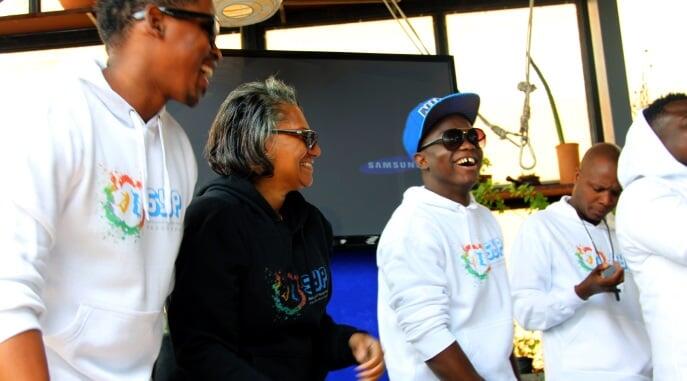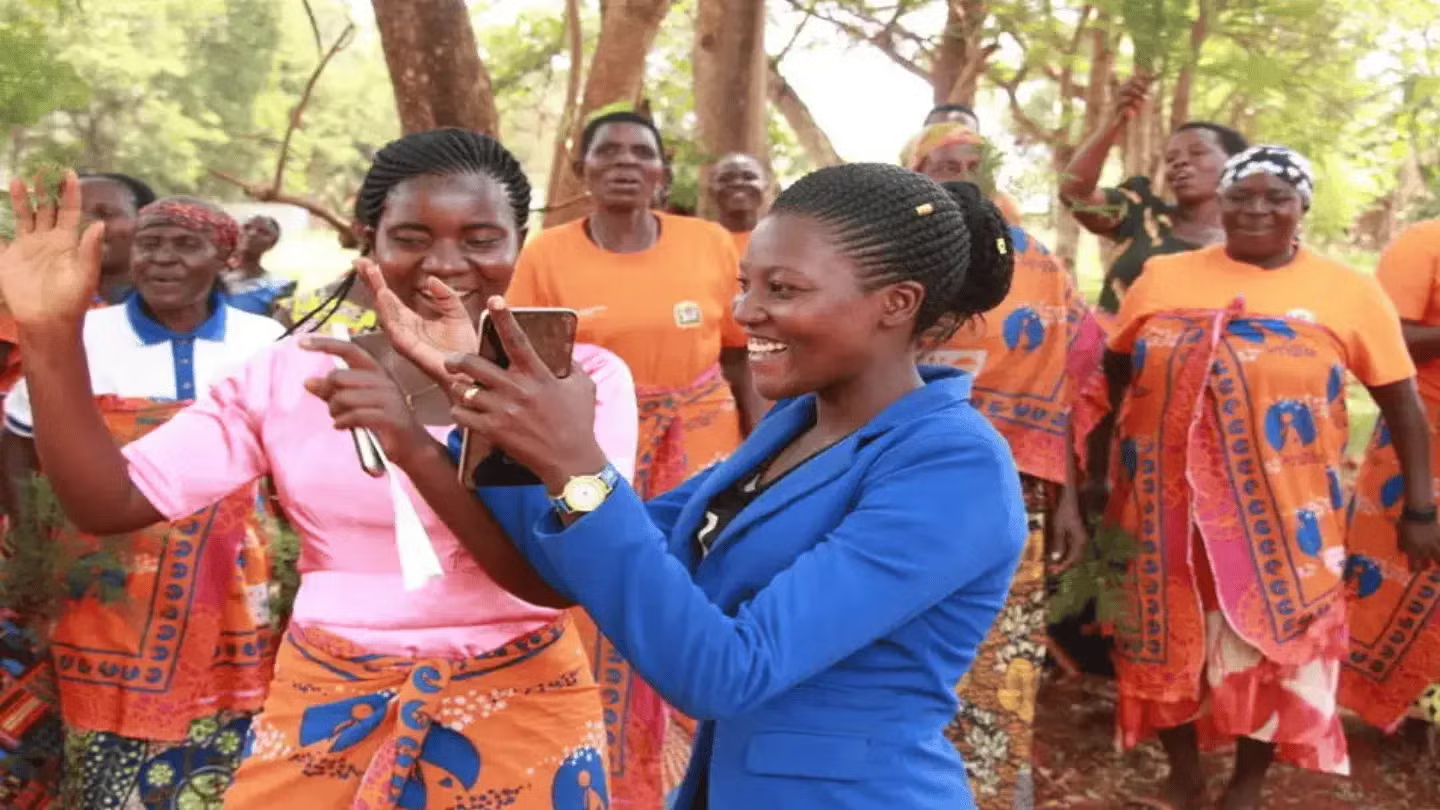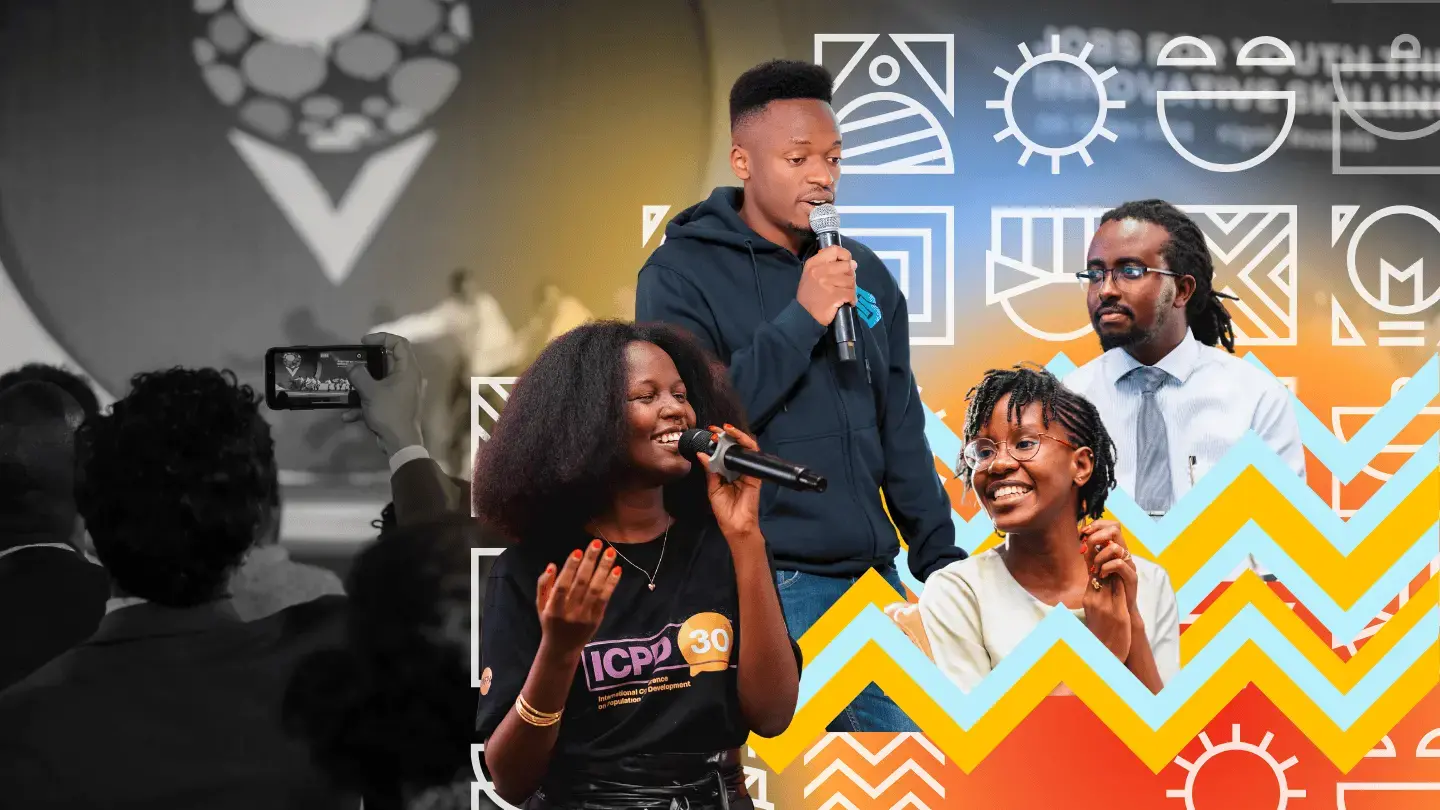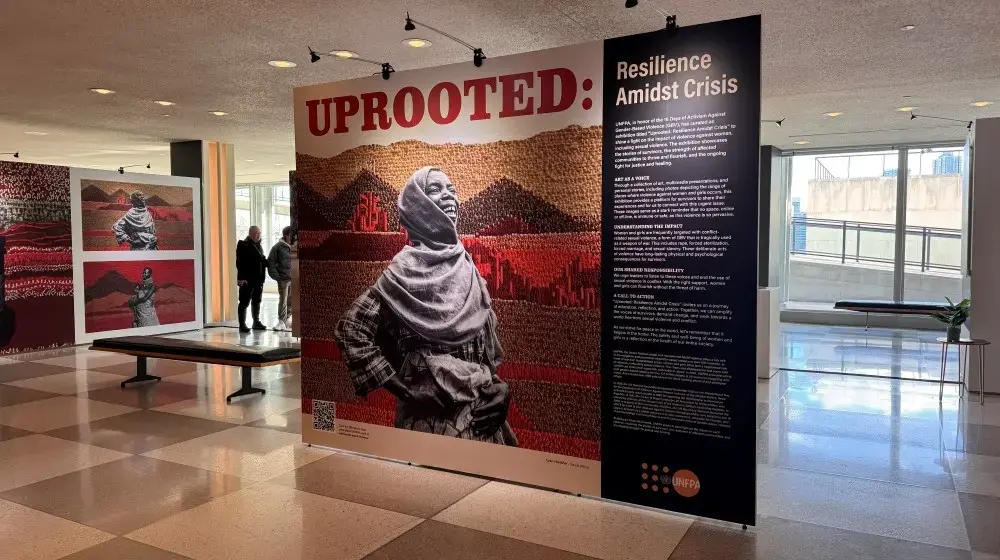They laughed and danced with the energy that symbolizes young people everywhere. This was the vibrant and celebratory regional launch of the Safeguard Young People (SYP) programme in Johannesburg on 18 November, which also saw the regional launch of UNFPA’s flagship report, the State of World Population 2014 entitled The Power of 1.8 Billion: Adolescents, youth and the transformation of the future.
Young people from all over the region, who gathered for the launch, related their inspiring stories and expressed their support for the programme and its aim to empower young people in matters of sexual and reproductive health, and protection against sexually transmitted diseases, including HIV.
In response to their stories, Dr. Julitta Onabanjo, UNFPA East and Southern Africa Regional Director, said leaders must be held accountable in terms of the institutions that work with and for young people. “Many young people don’t have a voice, are not empowered, and many girls are pushed into early marriage,” she said.
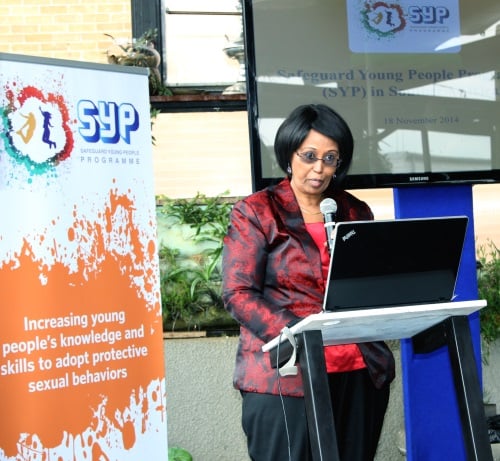
“We must ensure that we uphold the rights of all, especially people who are young, poor and who live in rural areas. We must be that champion for them, fight that war for them, and find solutions for them. We must ensure that the rights of everyone, no matter where they live, are upheld.”
Dr. Onabanjo formally launched UNFPA’s State of World Population 2014 report which, she said, had three main messages. The first was the importance of unleashing the potential of young people. The second was that of the demographic dividend: “We are asking for investment in young people, in their education, health, and job creation,” she said. And the third, “We must act right now – because that window of opportunity that we have will not always be there. Put young people at front and centre of rights.”
Dr. Asha Mohamud, UNFPA East and Southern Africa Adolescent Sexual and Reproductive Health Policy Advisor, spoke on the reasons for establishing the Safeguard Young People programme, as well as its aims and approach to empowering young people in East and Southern Africa. She noted that the programme aims to build on existing national initiatives to scale up behaviour change communication and integrated SRH/HIV services for young people while promoting youth leadership and participation, and prioritizing issues of marginalized adolescents. “What is needed is a systematic approach to improving and expanding effective programmes for young people in the region,” she said.
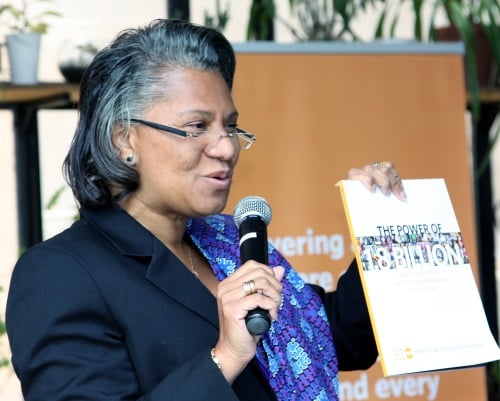
She outlined the activities aimed at building the foundation for the programme in the various countries during the first year, including the development of country frameworks, the selection of implementing partners, the establishment of coordinating committees, the development of monitoring and evaluation frameworks and indicators, and the commissioning of assessments – including the review of laws, policies and youth-friendly services. Almost all of the countries have now launched the programme and implementation has started with organizations already on the ground.
Dr. Mohamud discussed the child marriage initiative launched in Zambia and Malawi, and the success story of the campaign to delay child marriage in Ethiopia, which managed to delay the average age of marriage for girls by a year. This is an initiative the SYP programme will build upon.
Then full of life and laughter, a young man took to the stage; with his first few words the vibrant crowd fell silent: “I am HIV positive, and I’m not scared to say it. It was not my fault. It was no one’s fault. I was born HIV positive.”
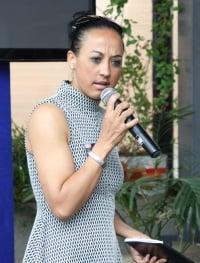
He described how people judge and stigmatize others for being HIV positive, and to murmurs of agreement he asked, “Why do we as young people judge each other? If someone does not love you for who you are, then leave them. Love yourself,” he advocated.
His words were echoed by a young woman who took to the stage to relate her story of becoming HIV positive: “I am 25 years old. I am a single mother and I have been HIV positive for eight years. My daughter is HIV negative. Growing up, I was a naughty kid. I was forward. I became pregnant at the age of 16 but my baby was born premature and died.”
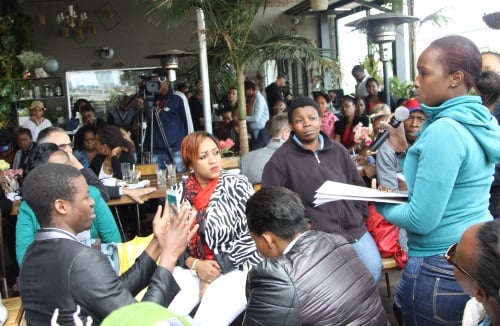
Finding it difficult to access family planning as a teenager, she fell pregnant and had abortions three times. When she became pregnant for the fifth time and the father of her daughter said he would support his child, she gave birth to her daughter – but not without a cost. From the damage it had sustained, her womb had to be removed.
“I’m not proud of using abortion as a method of contraception. I lost my womb, so you can imagine my regret. It was traumatic, but I am a very strong person. I want to tell other young people who have also messed up that it’s okay – you can pull yourself up again. I should have used protection. If you are having sex, use condoms and protect yourself,” she said.
“HIV is in my blood but it does not define me. People stigmatize others because of the way they treat themselves. I gave my HIV a name, Umzala (friend). I am HIV positive – and I am greater than HIV!”
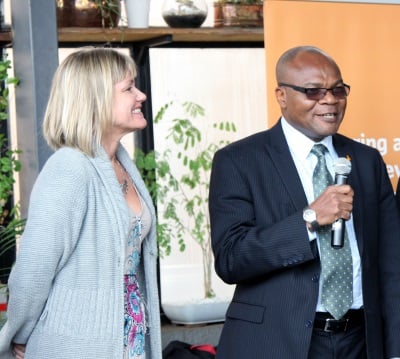
This was followed by a discussion led by TV presenter Siki Mgabadeli, who asked probing questions aimed at the young people present in the crowd, and involved a panel of sexual and reproductive health and rights (SRHR) experts that included Åsa Andersson, UNFPA Regional Programme Coordinator of the SRHR-HIV Linkages project, and Dr. Akinyele Dairo, UNFPA Practice Manager for SRHR.
In response to a question on the role that religious leaders could play when it comes to young people accessing family planning, Dr. Dairo said that religious leaders need to be brought on board in this regard: “They need to be educated that if you give young people protection (condoms) it doesn’t mean that they will have more sex.” They will be able to protect themselves if they are already sexually active.
Ms. Andersson described the rationale behind the SRHR-HIV Linkages project, its aims and the progress made to date.
The debate was followed by undoubtedly one of the highlights, a much-anticipated performance by a group of young artists from seven of the Safeguard Young People countries (Botswana, Lesotho, Malawi, Namibia, Swaziland and Zambia), who had gathered in Johannesburg on the weekend prior to the event to put together a song for SYP. The catchy beat and lyrics quickly drew people to their feet and had them dancing and towards the end, singing along. “We hope, we dream, we live, believing that everything will be all right.” The group of artists, consisting of rappers and a singer, plan to record a video of the song, which will be uploaded on YouTube and the SYP website in due course.
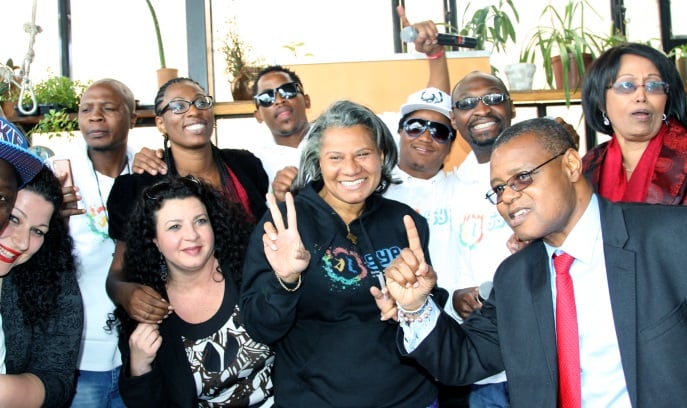
Dr. Onabanjo (centre) and the SYP team - from left, Renata Tallarico, Maria Bakaroudis and Dr. Asha Mohamud - with the rappers, young African writers and UNAIDS Deputy Regional Director, Dr. Pierre Somse.

